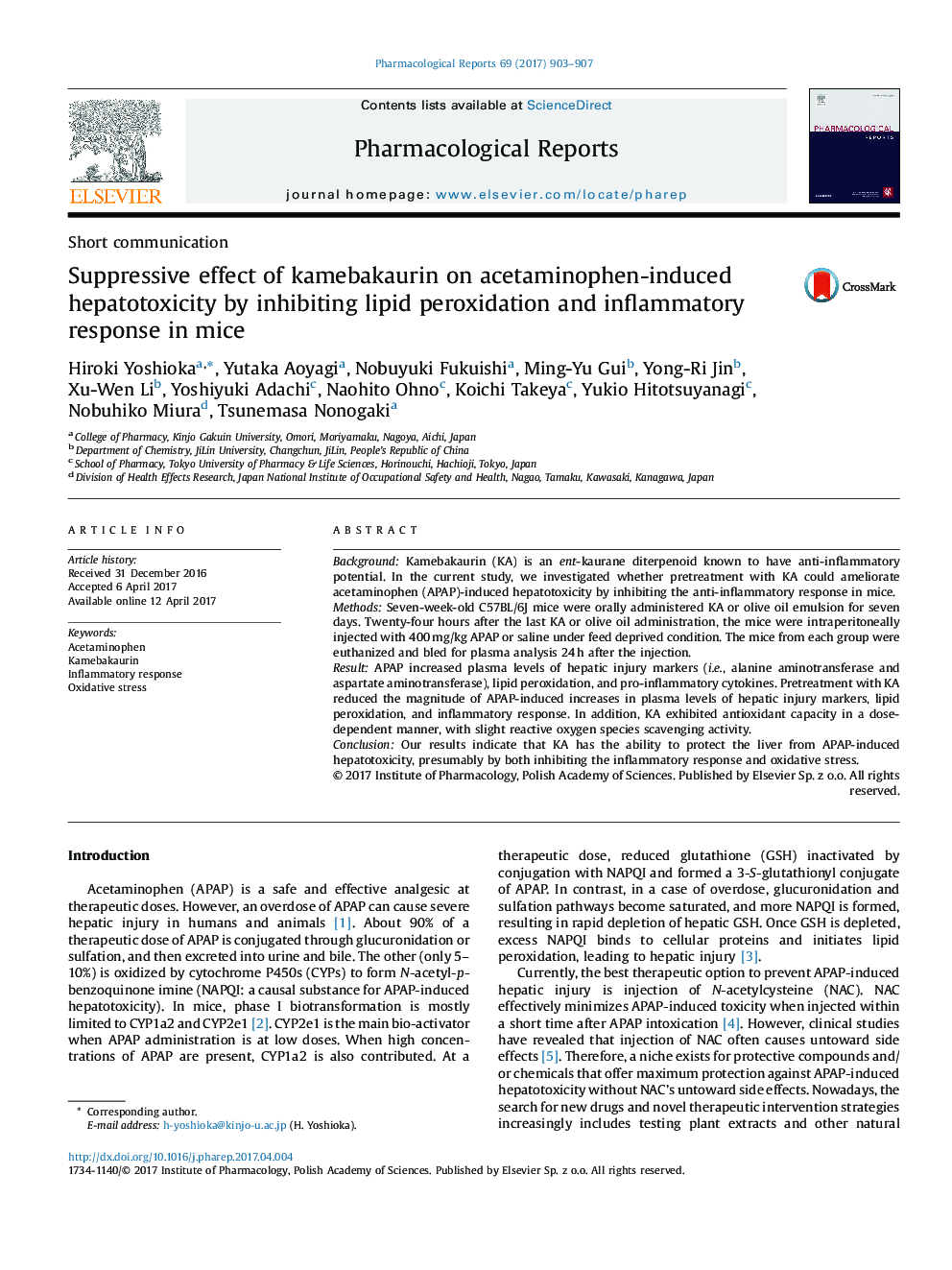| Article ID | Journal | Published Year | Pages | File Type |
|---|---|---|---|---|
| 5514972 | Pharmacological Reports | 2017 | 5 Pages |
BackgroundKamebakaurin (KA) is an ent-kaurane diterpenoid known to have anti-inflammatory potential. In the current study, we investigated whether pretreatment with KA could ameliorate acetaminophen (APAP)-induced hepatotoxicity by inhibiting the anti-inflammatory response in mice.MethodsSeven-week-old C57BL/6J mice were orally administered KA or olive oil emulsion for seven days. Twenty-four hours after the last KA or olive oil administration, the mice were intraperitoneally injected with 400Â mg/kg APAP or saline under feed deprived condition. The mice from each group were euthanized and bled for plasma analysis 24Â h after the injection.ResultAPAP increased plasma levels of hepatic injury markers (i.e., alanine aminotransferase and aspartate aminotransferase), lipid peroxidation, and pro-inflammatory cytokines. Pretreatment with KA reduced the magnitude of APAP-induced increases in plasma levels of hepatic injury markers, lipid peroxidation, and inflammatory response. In addition, KA exhibited antioxidant capacity in a dose-dependent manner, with slight reactive oxygen species scavenging activity.ConclusionOur results indicate that KA has the ability to protect the liver from APAP-induced hepatotoxicity, presumably by both inhibiting the inflammatory response and oxidative stress.
